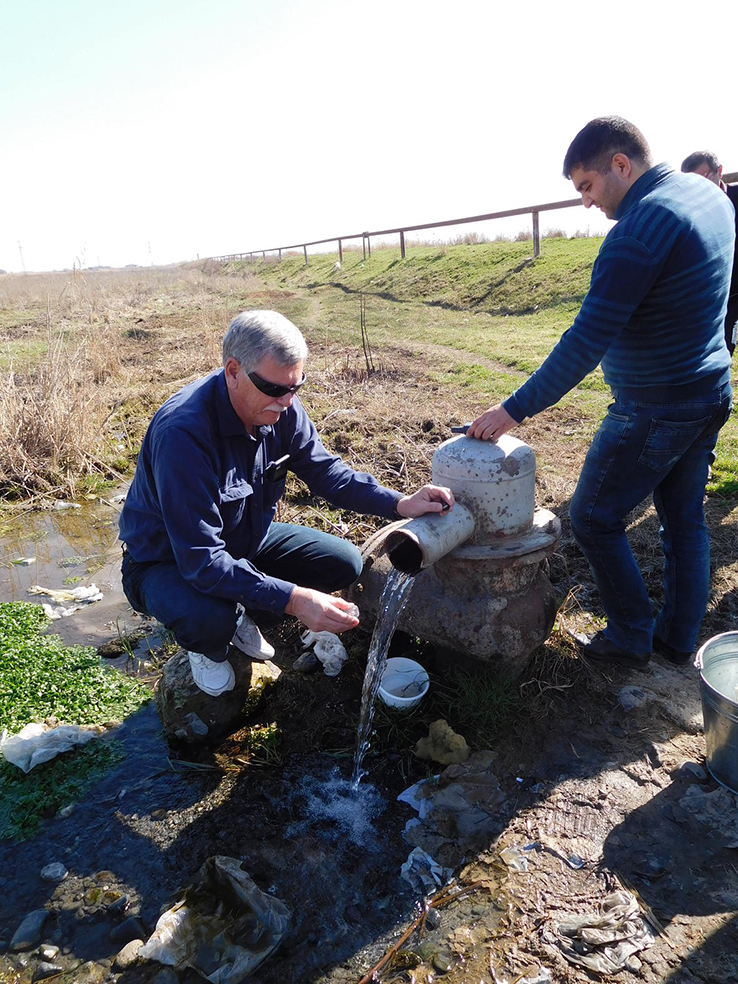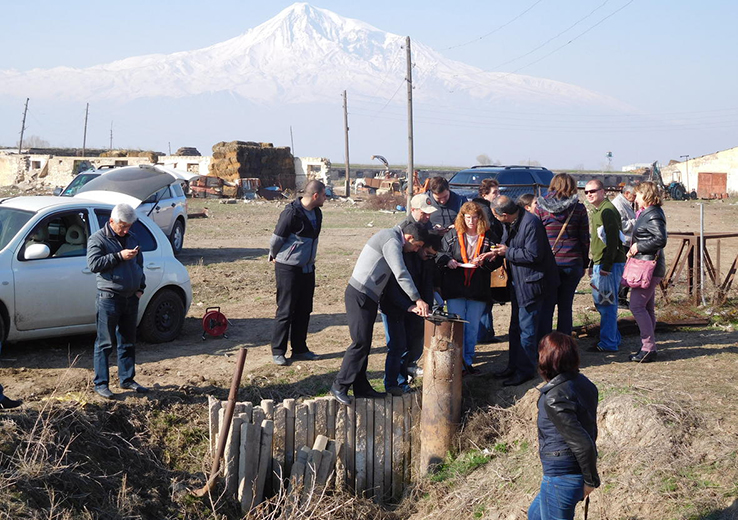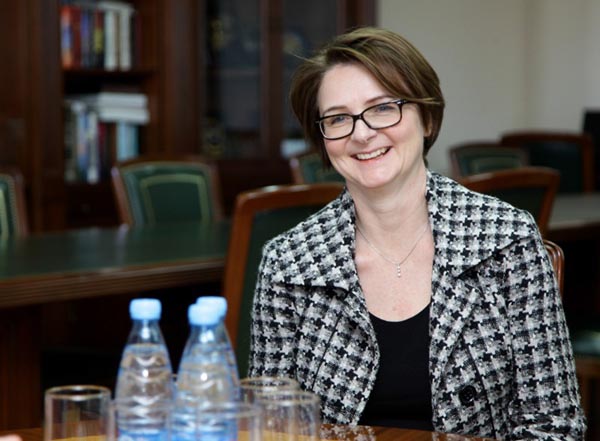RESTON, VA — South Dakota-based scientists from the U.S. Geological Survey are helping to restore a depleted aquifer and build in-country expertise for managing groundwater in the Ararat Basin of Armenia.
The growth of aquaculture to raise trout, sturgeon and other cold-water fish has increased withdrawals of critical groundwater in the Ararat Basin over the last 10 to 15 years. Some wells in the basin have stopped flowing and others have diminished flow in many places. The USGS is working with the U.S. Agency for International Development (USAID) Armenia and others to develop scientific tools for water-resource managers to understand and predict consequences of management decisions in Armenia.
“The severity of aquifer depletion in the Ararat Basin is disturbing,” said Mark Anderson, the director of the USGS South Dakota Water Science Center. “Our goal for this project is to assist Armenia in the restoration of the aquifer and the move towards more sustainable water uses.”
The consequences of these depletions in the basin are not fully understood or manifested yet. For example, land subsidence is a likely outcome, Anderson said.
“Aquifer depletion is not only affecting the wells, but causing lower lake levels and decreased streamflow in the Ararat Basin,” said USGS hydrologist Joshua Valder. “The depletion can also limit municipal supplies and potentially affect water quality as water from deeper in the aquifer is withdrawn to keep up with demands.”


During a recent two-week trip, the scientists traveled to Yerevan, Armenia, where they provided training on data collection to help develop a hydrogeologic plan and groundwater model for the Ararat Basin.
“One of the highlights of our recent trip was collecting water-level and water-quality data with a team of knowledgeable and enthusiastic water professionals from Armenia who are beginning to collect data to help with this study,” said USGS hydrologist Janet Carter. “We returned to South Dakota with useful information and are looking forward to acquiring more data from the Armenian water professionals.”
As the project progresses, the scientists will measure water levels in both flowing and non-flowing wells throughout the basin to determine water-level changes and areas where wells no longer flow. This information can be used to better understand the status and trends of water levels as a result of competing water uses such as aquaculture, agriculture and municipal supplies.
At the peak of aquaculture in the Ararat Basin, about 260 fish farms were in operation. Several fish farms have since been abandoned leaving behind wells that are still discharging groundwater on the ground.
“We know of more than 30 communities that had flowing wells to supply their drinking water, and now those wells no longer flow,” said Patrick Meyer, a science and technology advisor with USAID Armenia. “Over-extraction of groundwater has widespread consequences beyond just the water sector. For example, in recent years, the Armenian nuclear power plant has had to build new systems to ensure adequate water supply for cooling.”
Proper sealing of abandoned wells could help conserve some of the precious groundwater.
“Modeling of the artesian aquifer in the Ararat Basin would be a good next step,” Valder said. “Modeling can help determine which of the abandoned wells could be sealed using limited resources and may best benefit the aquifer.”
More information about this study is available on the USGS South Dakota Water Science Center website.










